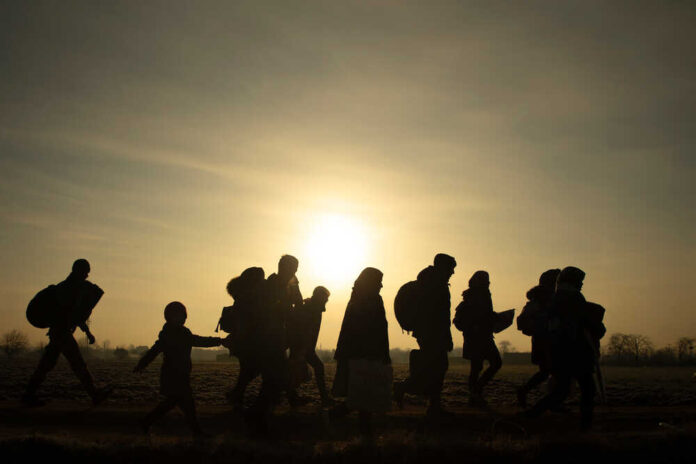Chicago has decided to finally enforce a plan that has been delayed that will evict illegal immigrants from shelters the city set up.
Mayor Brandon Johnson said his administration’s intention behind the policy is to “decompress” the population at shelters throughout the city. As he said on NBC recently:
“By encouraging resettlement while also providing case-specific extensions with a focus on health and safety, we are advancing a pathway to stability and self-sufficiency.”
The policy will put a stay limit in place of 60 days at any shelter for any migrants. After they are evicted from a shelter, they have to either re-apply to another shelter in the city or find housing in some other way.
Chicago reported earlier in the week that there are still more than 11,000 migrants at the 23 different shelters that are run by the state and city. That total is among the more than 37,000 who have arrived in the city since 2022.
NBC reported that officials with the city said:
“THose exiting have the option to return to the Landing Zone and be reprocessed and placed in shelter once again if appropriate beds are available or opt for onward movement.”
A report from the city found that within the first 48 hours of the policy being enforced, less than 10 illegal immigrants had been evicted successfully from shelters.
The mayor’s deputy chief of staff, Cristina Pacione-Zayas, said:
“These are some of our more expensive shelters to operate, and what we’re trying to do is optimize the resources that we have to be able to carry through.”
The Johnson administration has been trying to mitigate the migrant crisis in Chicago that is hogging up significant resources, but thousands of the illegal immigrants who are in the shelters were already granted an extension on their eviction.
The city had predicted that 36 people would be removed from shelters by last Sunday. But, by later that night, 31 of those were given an exemption-based extension on the eviction due to child care, pregnancy, medical care, quarantine and enrollment in public benefits being cited as reasons why the evictions were postponed.
Chicago has already postponed the planned eviction proposal three different times because the weather was simply too cold, or there were staffing issues at the shelters, or there was significant outcry from local politicians and activists.
Now, though, the Johnson administration says that more than 2,000 illegal immigrants will be evicted from city shelters by the end of April.
The plan has only just begun to be enforced, yet a progressive group in the city has already said it will fight it.
The Progressive Reform Caucus of the Chicago City Council released a recent statement that read:
“The Progressive Caucus disagrees strongly with the strategy, as it risks contributing to the city’s unhoused population and exacerbating social and racial tension at a time when we need to unite. As progressives, we believe it is critical for all levels of government to recognize and combat the root causes that contribute to so many of society’s ills.”


















